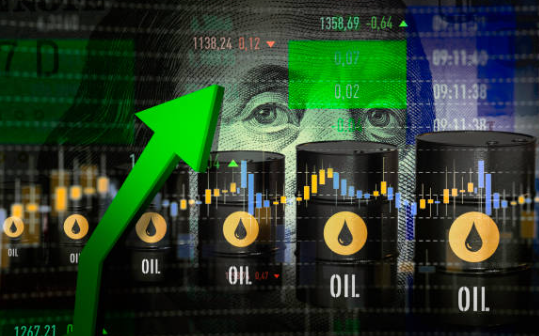Understanding the Basics of International Oil Trading : A Comprehensive Guide
As one of the most important and sought-after commodities in the world, international oil trading is a complicated and crucial part of the global economy. It is a vital force behind economic expansion since it has a big impact on supplying energy to homes, businesses, and transportation. Let’s take a look at the fundamental ideas and processes underlying global oil trade and its major participants, pricing schemes, dangers, and geopolitical implications.
The Oil Market and Its Players
A worldwide network of traders, brokers, and investors conducts business on the oil market. The Organisation of Petroleum Exporting Countries (OPEC) and non-OPEC countries like Russia and the United States, which both produce oil, are at the centre of this system. The principal raw material for refined petroleum goods including petrol, diesel and jet fuel is produced and exported by these nations. Aside from oil producers, there are also oil-consuming nations that significantly rely on imports to meet their energy needs. Some of these importers could be nations with a meagre domestic oil production or those with burgeoning economies in need of additional energy.
Oil Pricing Mechanisms
Supply and demand dynamics, geopolitical developments, prevailing economic conditions, and market speculation all have an impact on oil prices. Brent Crude, which is a mixture of oil from multiple North Sea areas, is the most widely used benchmark for crude oil pricing. Another important benchmark that captures the cost of American oil is West Texas Intermediate (WTI).
International markets like the New York Mercantile Exchange (NYMEX) and the Intercontinental Exchange (ICE), where futures contracts and derivatives are purchased and sold, are where oil is traded. Market participants can manage their risk exposure by hedging against price changes thanks to these financial products.
Understanding Geopolitical Risks
International oil business depends greatly on geopolitics. In locations that produce oil, political unrest, hostilities, sanctions, and embargoes can interrupt supply, causing price volatility. For instance, market jitters and price increases are frequently brought on by tensions in the Middle East, a significant oil-producing region. Oil trading may be impacted by international trade agreements and policies in addition to geopolitical threats. The movement of oil across borders and the direction of world oil prices can be affected by changes in tariffs, import quotas, and trade agreements.
Sustainability and Environmental Concerns
Sustainability is now a major factor in the oil trading environment as a result of rising awareness of climate change and environmental problems. The demand for and cost of oil are affected by global initiatives to cut greenhouse gas emissions and switch to cleaner energy sources. The development of electric vehicles, tighter emission laws, and the use of renewable energy sources might all have an effect on the long-term prospects for the oil industry. Oil traders and investors are increasingly incorporating environmental factors into their tactics as sustainability gains popularity.
Trading hubs and logistics
Oil is traded extensively in a number of important sites across the world. The interchange of oil between buyers and sellers is facilitated by these hubs, which include Singapore, Rotterdam, Houston, and Dubai. They serve as crucial nodes in the global oil supply chain and are crucial to the logistics and distribution of oil. A sizable tanker fleet and extensive pipeline network are used in the oil transportation business. Oil is transported on land by pipelines while crude oil is transported across oceans by tanker ships. For markets to remain stable, oil must be efficiently transported from production hubs to consumption areas.
Risk Management and Hedging Strategies
Due to price swings and geopolitical unpredictability, oil trading comes with inherent risks. Participants in the market use a variety of hedging techniques to control these risks. Options and futures contracts are common methods for reducing price risks. Producers and consumers of oil can protect themselves against sharp price volatility by locking in prices in advance.
To mitigate the risks related to interest rates and currency exchange rates, financial tools like swaps and derivatives are also employed. To safeguard their assets and maintain the stability of their operations, major financial institutions and oil firms also employ sophisticated risk management techniques.
Winson Oil in International Oil Trading
Winson Oil Group, headquartered in Singapore, is the largest oil trading hub in Asia and the third largest in the world. With a total trade tonnage of over 11 million MT, our trading business currently focuses on gasoil and has established a solid presence in the local market. Due to our long-standing partnerships with significant Asian refineries, we have been able to quickly strategize in order to offer our clients the best oil supply and trading service. Our clients are spread all across Asia including Singapore, Indonesia, the Philippines, South Korea, China, Thailand, Vietnam, Timor-Leste, etc. Winson Oil Group, which has a thorough understanding of the industry, has expanded its worldwide trading operations to encompass chemical items such base oil and jet oil. To learn more about us, visit our website.


